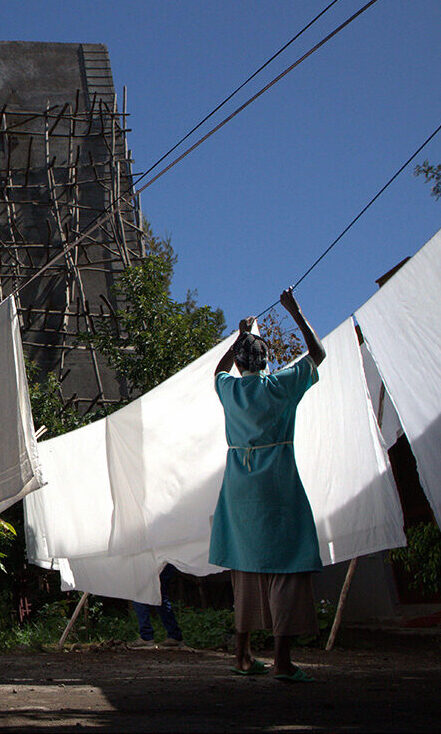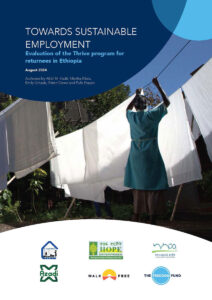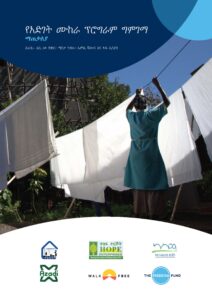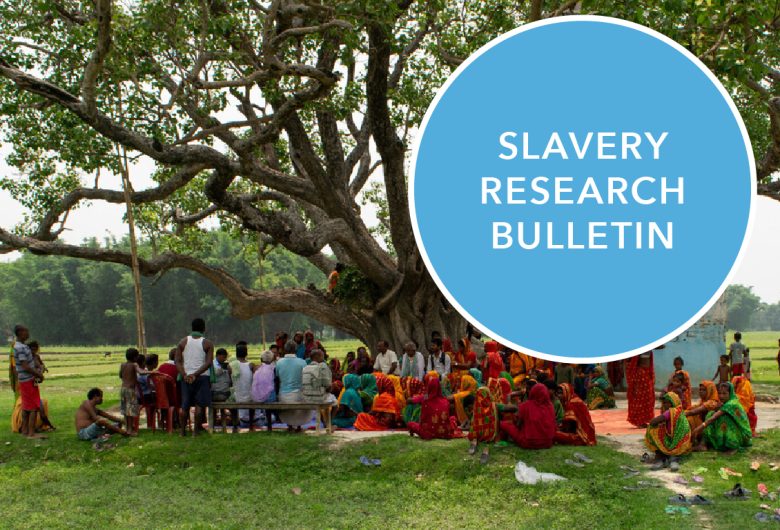In 2021, there were over 839,000 emigrant workers and 589,000 returnee migrants in Ethiopia (Ethiopia Statistics Service, 2021), many of whom were women and girls who face high risks of abuse, exploitation and servitude while abroad as domestic workers, particularly in the Middle East. Upon their return, these women often encounter barriers to reintegration and sustainable employment. To address this issue, the Freedom Fund and Walk Free launched the Thrive pilot program between 2021 and 2023, to provide women with an alternative to high-risk migration and to support the well-being of returnee survivors of human trafficking.
The Thrive pilot program enrolled 240 female returnees, who had previously worked as domestic workers in the Middle East and were unable to find work upon returning to Ethiopia. Data collected at the end of the pilot period showed that 93% of the women went on to start on-the-job training, 80% remained in employment for at least three months, and 68% were still in employment after six months.
An evaluation of the pilot, led by renowned Ethiopian economist Dr. Abbi M. Kedir and The Freedom Fund, as well as researchers from Azadi Kenya and KASMA Charity Organization, revealed that the program offered critical vocational skills and led to high participant satisfaction.
Key findings included:
- Participants were supported into formal employment in the hospitality and food industries. Although starting wages are typically low, averaging ETB 3,995 (US $72) per month, participants were earning more than the average urban working woman in Ethiopia.
- Working hours were greatly reduced to an average of 49 hours per week, compared with 128 hours in previous jobs as domestic workers in the Middle East, and 63 hours in previous jobs in Ethiopia.
- Satisfaction with working conditions was notably higher in the participants’ new jobs. Nearly all (98%) agreed that their current job enabled, “control over my working conditions”, compared to 54% who said that about their previous job.
- The program also had a positive impact on the psychological well-being of the returnees, with 97% using their newfound skills to recover from past traumas and 93% feeling less ashamed and anxious.
- The cost-benefit analysis showed a promising ratio of 1.45 to 1.60, indicating that the benefits of the program would outweigh costs over five years.
The assessment led to several key recommendations for enhancing the Thrive program. These include maintaining a feedback loop with participants and employers, engaging employers to improve work conditions, researching household dynamics to garner family support and addressing gender norms.
Towards sustainable employment: Evaluation of the Thrive program for returnees in Ethiopia provides detailed findings of the pilot, as well as a roadmap for future phases to address the root causes of unsafe migration. By focusing on sustainable employment and holistic well-being, the program offers a viable path for returnees to rebuild their lives in Ethiopia and contributes to the country’s broader socioeconomic development.
Click below to access the full report:
Click below to access the executive summary in Amharic:
Photo credit: Stewart Innes/Alamy Stock Photo





